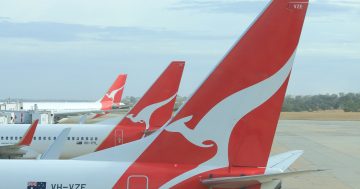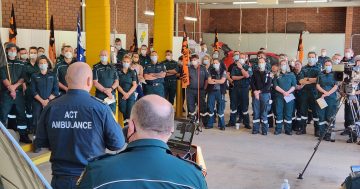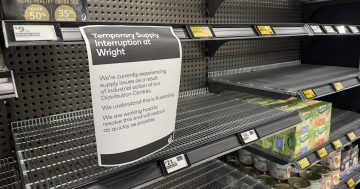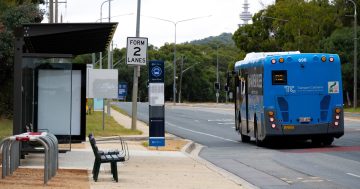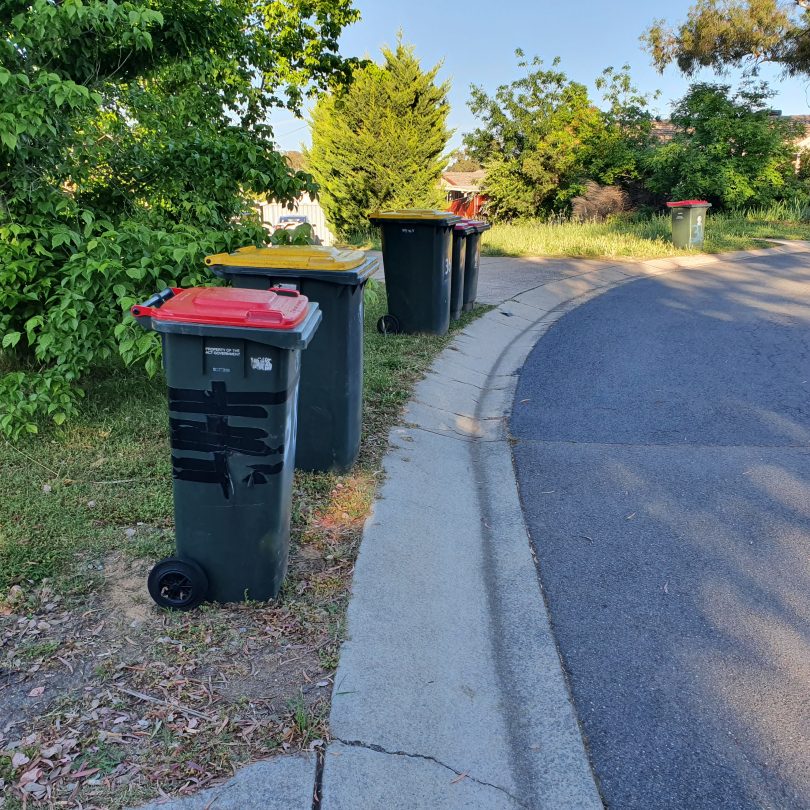
Garbage bins ready for collection …. anyday now … Photo: Region Media.
We’re all in this together.
That’s been the mantra for 2020 – the year that’s brought almost every catastrophe to our door bar locusts, although if you were in Africa in August you can cross that catastrophe off your list.
Australia has had its first recession in decades, hundreds of thousands of people have been made unemployed and probably millions underemployed, the deficit has blown out to triple figures, and God only knows how many bankruptcies and suicides will follow, and that’s before hail and the fires. There is almost nothing good about 2020 except that it is slowly, mercifully coming to an end and surely 2021 has to be better, right?
But through it all, we could always take heart in the mantra that we’re all in this together.
But we’re not.
For the last few weeks, for example, Canberra has been waiting and watching to see whose garbage collection would be disrupted next.
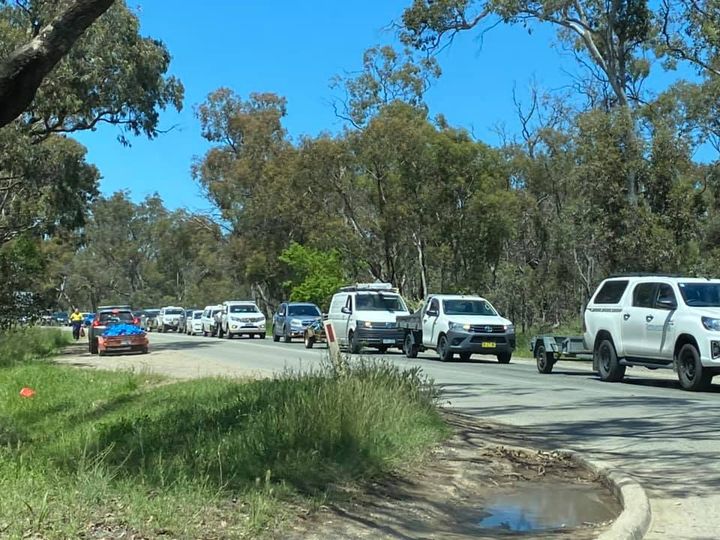
At least there weren’t locusts in the line at Mugga Lane. Photo: Facebook.
Maybe you’d be lucky and your service would only be delayed a few days while others had full bins for an extra week. Maybe you carted your rubbish to a collection point. Canberrans, being a resilient bunch, have dealt with it. And in the scheme of a year which also included killer bastard magpies, it’s probably not a big deal.
Except it is. And it should be. Especially when you learn more about the pay offers from Suez that the Transport Workers Union keeps rejecting. So far, there have been six offers that didn’t meet the approval of Suez-employed garbos.
So what is so egregiously low-ball and mean about the Suez offers? What are those greedy French capitalist swine at Suez doing to our Aussie-battler-hero garbos?
Here are the basics.
The union is pushing for a 4 per cent yearly increase in drivers’ wages for three years.
Suez has proposed a wage increase of 2 per cent in 2021, 3 per cent in 2022 and 3 per cent in 2023. Last week they upped it to 8.3 per cent over three years which was also rejected.
Currently the hourly rate is $37 an hour. That’s about $73 k a year base rate. Without overtime. And there’s a lot of overtime. And penalty rates. In fact, they add about $35 k a year to garbos total pay. On average, they’re on about $110-120 k a year.
Nice work if you can get it. Especially when so many don’t have work.
In a statement to Region Media on 17 November, TWU ACT Secretary Klaus Pinkas said: “It is a fundamental belief of TWU members that it is a good thing that critical service workers be well paid.”
Totes agree. And it would seem that these critical service workers are well paid. Very well paid.
But it’s probably worth seeing how these wages compare.
You see, the first garbos strike was announced on 29 October. At the same time, on the very same day, in fact, hospital cleaners at Calvary Bruce picketed the hospital. These hospital cleaners weren’t striking because they were offered 2, 3 and 3 per cent over three years. These cleaners on $22.02 an hour were offered 5 cents an hour.
Read that again. It’s not a typo. Five. Cents. An. Hour. That works out to an annual increase of 3/5 of stuff all (rounding up).
Those poor workers, whose stomach-churning job you would never want to do yourself, are represented by the United Workers Union.
Lyndal Ryan, United Workers Union Director for Property Services, said in late October: “These hospital cleaners are all migrant workers, many of them on work visas”.
“Their decision to take industrial action is a brave and considered step.
“Throughout the pandemic, cleaners have been publicly lauded as heroes. This is how the Calvary Hospital’s specialist cleaners are being repaid for their services and dedication. With management who won’t even meet with them and an employer who profits from their labour, but goes to extraordinary efforts to keep them poor.”
Hard to argue with that.
Are garbos essential workers? Of course. So are hospital cleaners. Which would you rather be? And which would you rather be at $20 an hour? It’s no contest. But could you be a hospital cleaner at $37 an hour? Yeah, nah. Double it and then we can start a conversation.
Is highlighting their pay being unfair to the garbos? Sure is. But comparisons here are important. Because it’s a far sight more than a hospital cleaner on $20 an hour takes home. Or prison guards and police officers and school teachers who all earn less. Or the preschool teacher who earns much less. Or Uber drivers.
Or maybe you.
And it’s unlikely you’ll be walking away with 4 per cent a year for three years. Or even 8.3 per cent.
So we’re not all in this together. That’s just rubbish.













